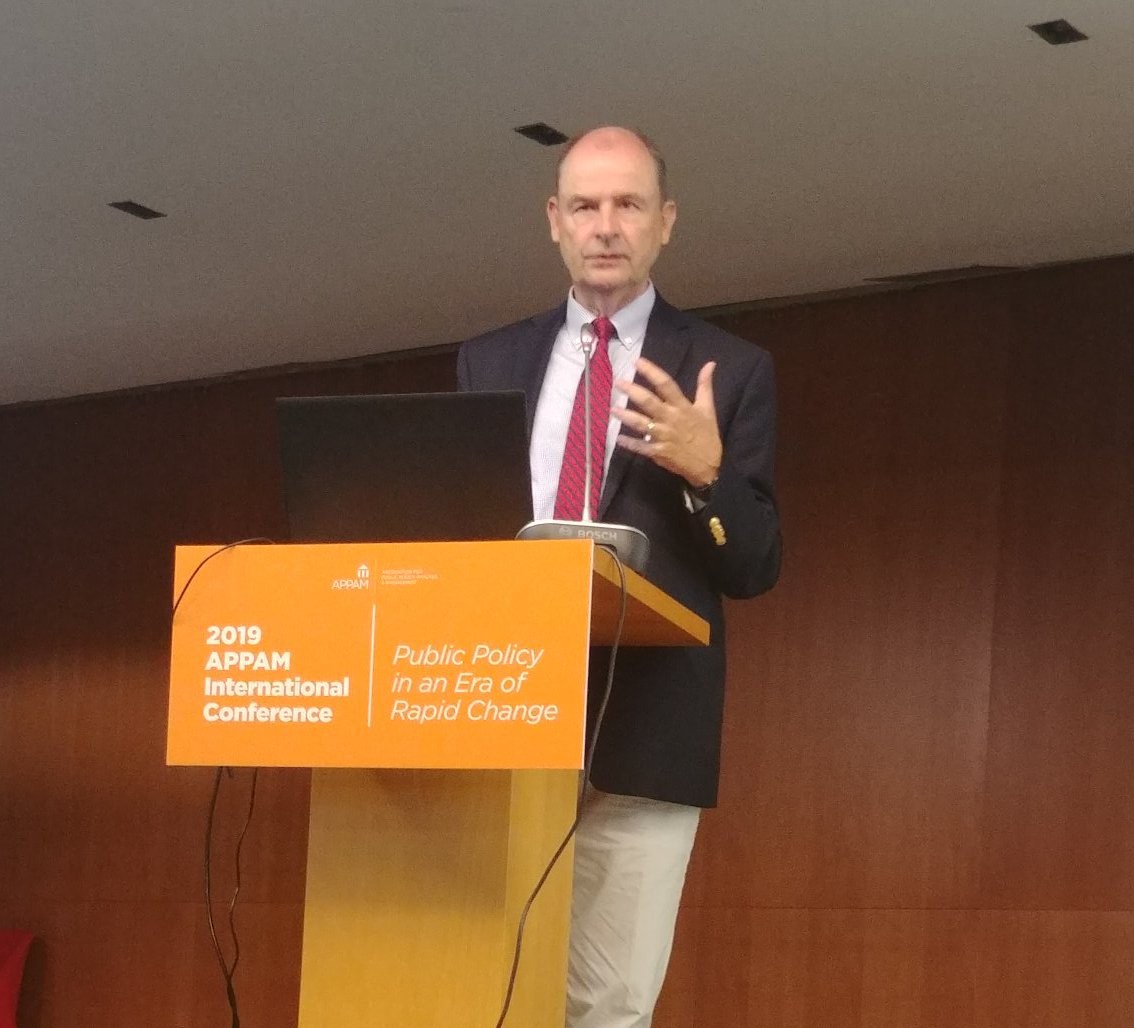
© Keshia Pollack Porter via Twitter
By Kathryn Walsh, Bill & Melinda Gates Institute and Johns Hopkins Bloomberg School of Public Health
Climate change is a ‘wicked’ problem according to Dr. Thomas Burke, a professor from Johns Hopkins University Bloomberg School of Public Health and former Environmental Protection Agency (EPA) leader under President Barack Obama.
It is ‘wicked’ because it is complex and affected by many interacting factors. Its impact is broad—touching air and water quality, agriculture, transportation, national security and health. There is no one solution to mitigate its negative impacts, said Dr. Burke. But one reality is clear: to address climate change, we need to translate scientific research into evidence-based policy. And we need to do this quickly.
On Monday, Dr. Burke spoke at the opening plenary for the fourth annual Association for Public Policy Analysis and Management (APPAM) International Conference, hosted this year in Barcelona, Spain, at The Johns Hopkins University - University Pompeu Fabra (JHU-UPF) Public Policy Center. His opening remarks come just days following a heat wave in Europe that broke record temperatures across the continent. Scientists warn that the extreme heat is the result of global warming and that temperatures will only continue to rise unless governments take action.
Dr. Burke highlighted three recent cross-sectoral initiatives that he believes show promise in bridging the gap between research and policy to mitigate the impacts of climate change: the National Academies of Science, Engineering, and Medicines strategic plan to address climate change; the Bloomberg American Health Initiative at Johns Hopkins University Bloomberg School of Public Health; and the Planetary Wellbeing Initiative at the University Pompeu Fabra.
Barcelona’s mayor, Ada Colau, also spoke at the opening plenary, focusing on many of the same themes as Dr. Burke. How is it, said Mayor Colau, that a city such as Barcelona which welcomes more than three million tourists each year, cannot welcome four thousand migrant children and adolescents?
Colau noted that if the proper policies are not in place to support young migrants, then people perceive them as a problem and this ultimately leads to racism. Colau argued that the real problem is that local governments cannot pass supportive policies to help migrants adjust to their new cities. Frequently, cities are beholden to national or state policies on immigration.
Both Dr. Burke and Mayor Colau challenged the conference participants to be creative and to consider the problems politicians face when communicating their research. They highlighted that cross-sectoral organization is key. Dr. Burke noted that if we are to address the ‘wicked’ challenges of today, researchers must leave the silos of their universities and labs and become ‘political’ in a way that will help regular citizens and political leaders understand what solutions can be implemented to promote change.
Over the next two days, public policy researchers will do just that, coming together in Barcelona at the APPAM International Conference to discuss the latest evidence-based research to address new and emerging global challenges, with climate change policy at the heart of many of the sessions.